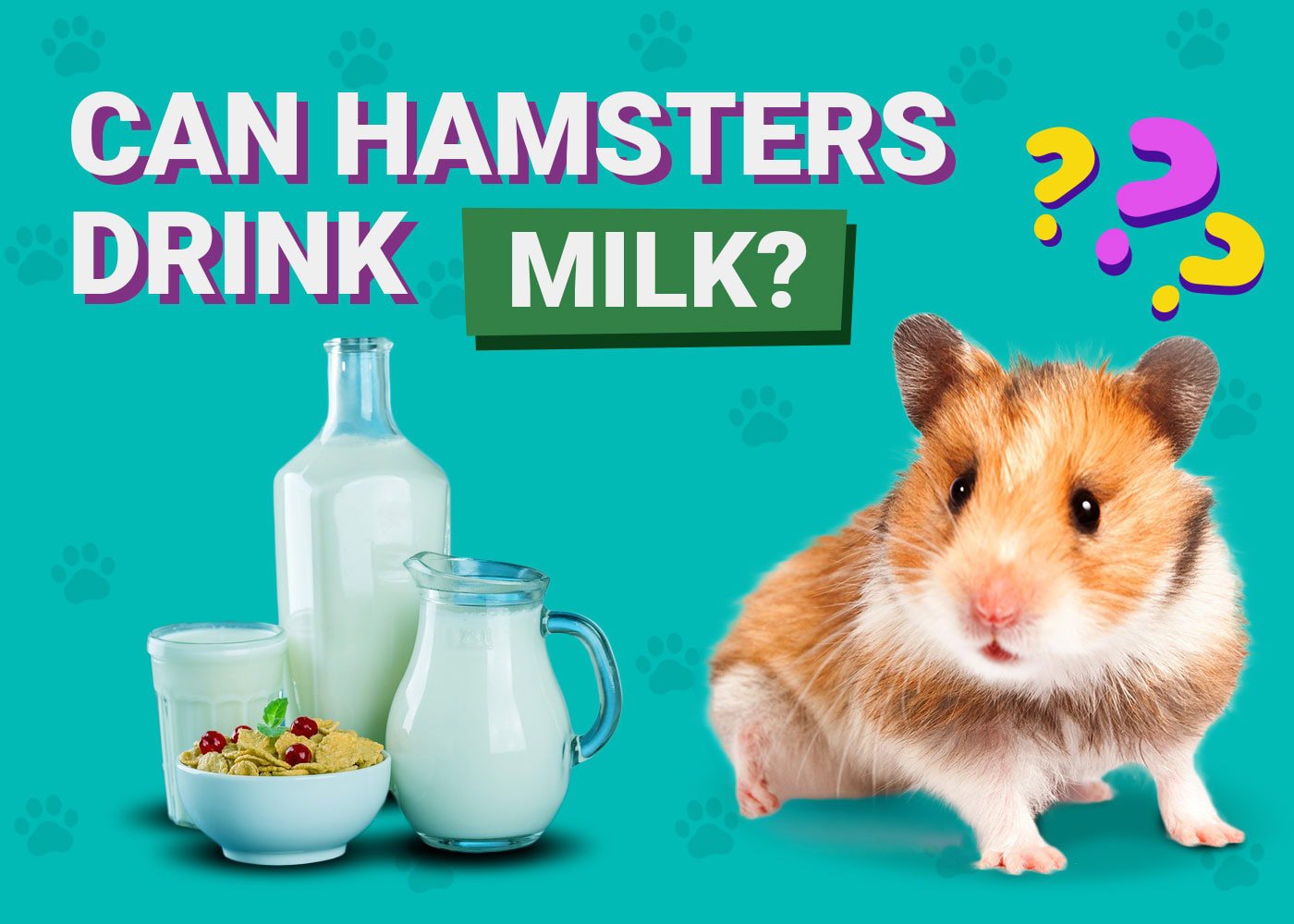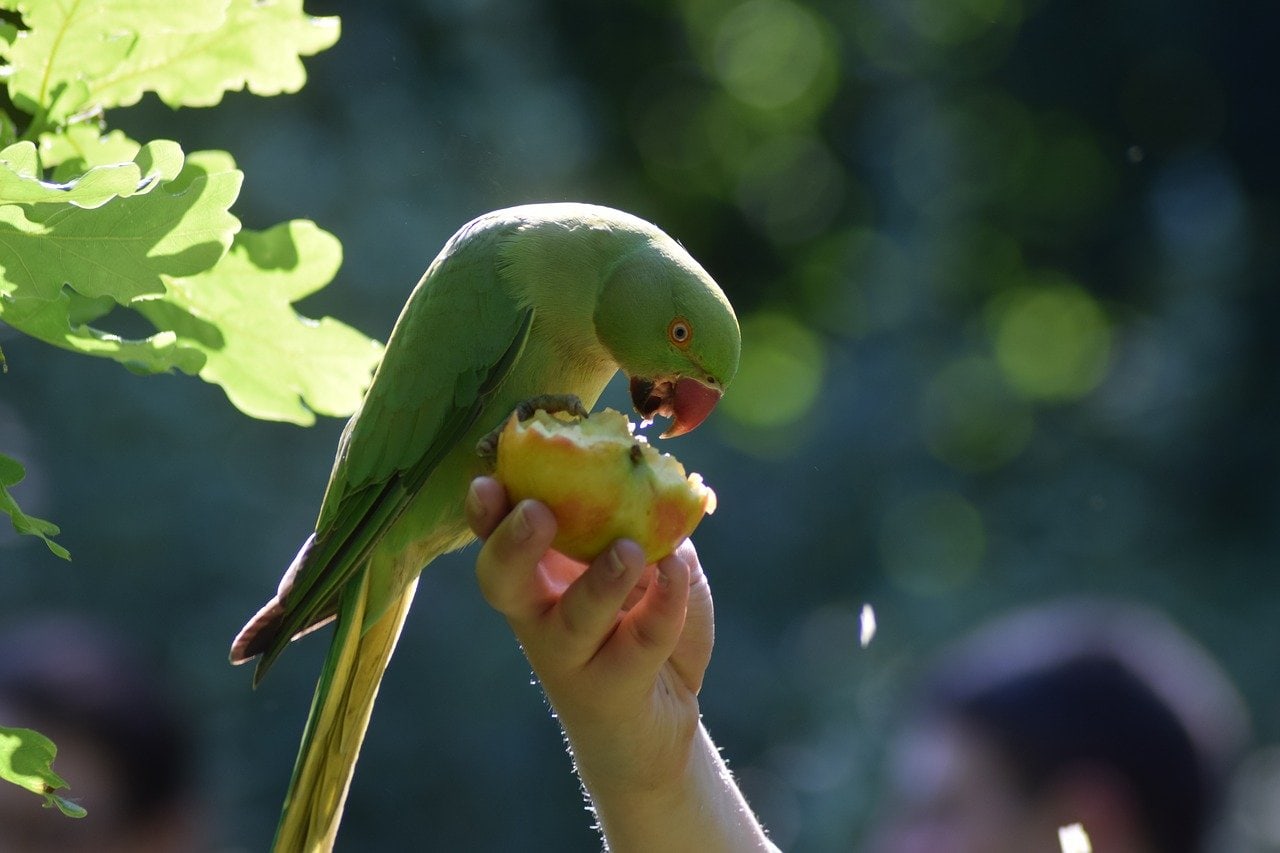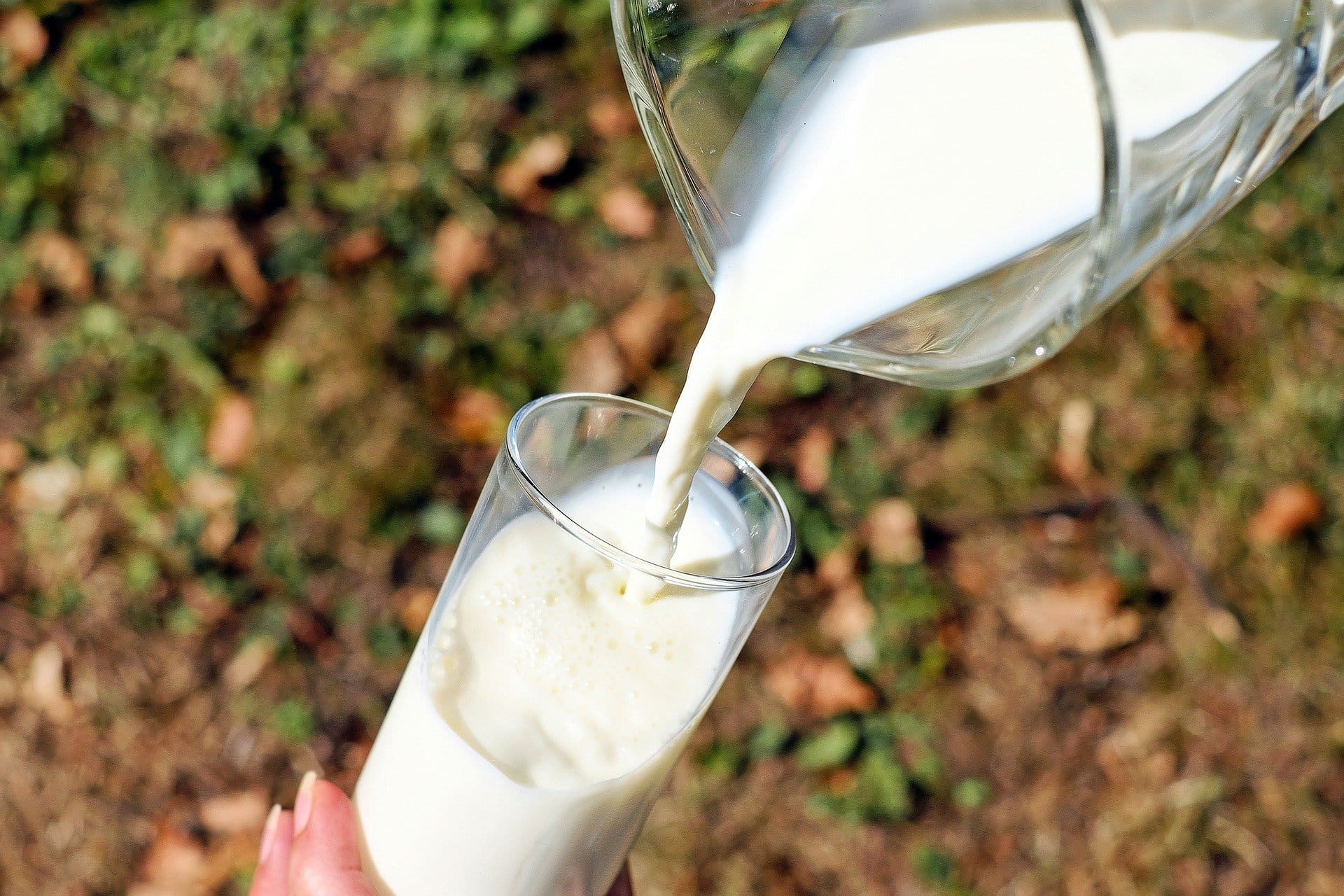VET APPROVED

The information is current and up-to-date in accordance with the latest veterinarian research.
Learn more »Click to Skip Ahead
Hamsters are extremely popular pets due to their small size and low maintenance needs. However, many animal lovers are unsure how to properly care for these rodents, especially when it comes to their nutrition and diet. One common question among animal lovers and hamster owners is: Can hamsters drink milk?
Since hamsters are mammals, they can technically drink milk, but it is not the most suitable drink for these rodents, as drinking it after a certain age could cause several health risks.
In this article, we talk about the possible risks associated with hamsters drinking milk and alternatives to try.

Should Hamsters Drink Milk? Is It Good for Them?
After birth, baby hamsters strictly feed on their mother’s milk as the main source of nutrients. During this period, the pups can easily digest lactose. However, as they grow and become weaned, many hamsters lose the ability to digest lactose, leading to lactose intolerance.
While milk is not toxic to these rodents, drinking it at an adult age could cause several health risks. Since adult hamsters have difficulties digesting lactose, their bodies can react poorly to milk, leading to diarrhea and stomach upset.
Another issue connected with hamsters drinking milk is the potential of the milk getting spoiled or spilling in your hamster’s cage, leading to germ and bacteria formation, which could easily make your pet sick.
Hamsters should only drink milk when they’re still babies, and it should only be from their mothers. After they’ve grown, it’s best for hamsters not to drink milk.
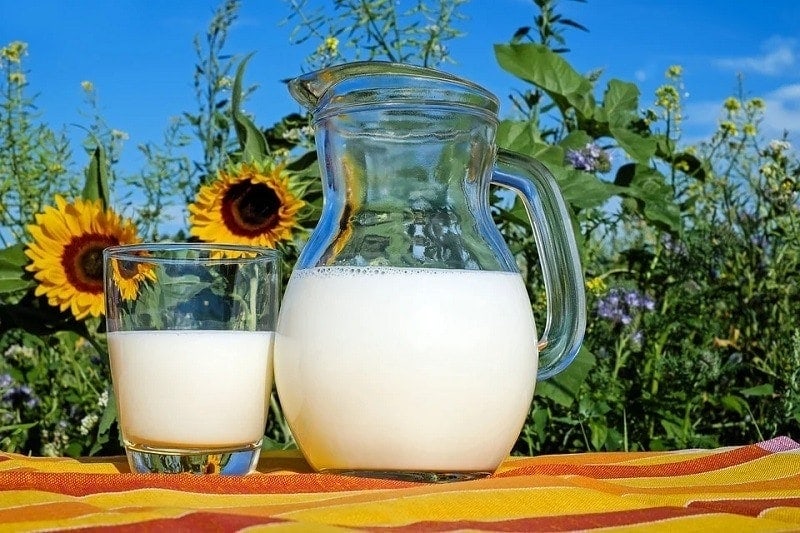

Possible Risks Associated With Hamsters Drinking Milk
1. Digestive Upset
One of the biggest health risks associated with hamsters drinking milk is digestive upset. In most cases, drinking milk can lead to diarrhea, stomach upset, and abdominal pain.
If persistent, the diarrhea could eventually cause more health troubles, such as dehydration, which is why it’s best to keep milk out of your hamster’s diet. These rodents are particularly susceptible to the effects of diarrhea, so anything that could upset their tummies should be avoided.
2. Nutritional Imbalance
Hamsters are small creatures, and even the slightest dietary changes could have a big impact on them. Drinking milk could lead to a nutritional imbalance, which could further damage their health and cause more problems.

Which Drink Is Suitable for Hamsters?
The only fluid that hamsters need to intake daily is water. It’s essential for proper body functioning and overall well-being, which is why your pet should have constant access to fresh drinking water. There’s no need to offer any other drinks or fluids to them.
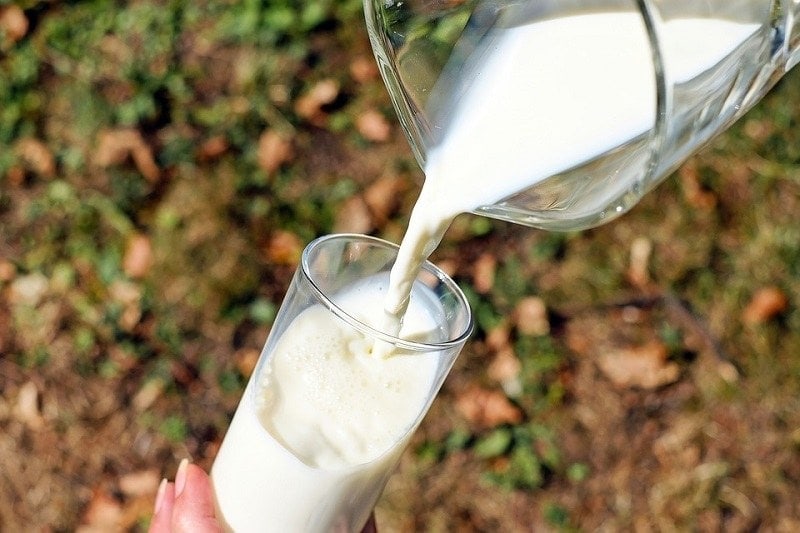
Are There Any Alternatives for Milk That Hamsters Can Consume?
Some people might want to offer milk to their hamsters as a way to spruce up their diet and have them intake various minerals and vitamins. However, since drinking milk could cause digestive upset in your hamster, it’s better to look for safer alternatives.
These items offer plenty of the minerals and vitamins that your hamster needs for proper development:
- Apples
- Mealworms
- Romaine lettuce

Final Thoughts
Hamsters can drink milk because they’re mammals and consume milk after birth. However, as they mature, most hamsters lose their ability to digest lactose, making them lactose intolerant.
Therefore, only baby hamsters should drink milk and only from their mother. Adult hamsters would do best without milk in their life stage and should drink water instead.
Featured Image Credit: NataliaPopova, Shutterstock
